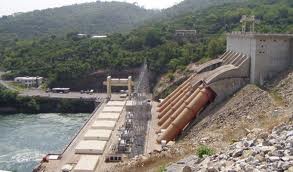The Volta River Authority (VRA) is moving away from the direct control of its schools, hotels and real-estate to focus on its core mandate of power generation.
Delineation of the non-core businesses is meant to ensure a more transparent budgeting for tariff requests by the Authority to the PURC, and not pass on nominal costs to consumers.
VRA is currently responsible for the wages and salaries of the over-520 employees working in its property department, hospitals and schools which do not constitute its core business.
The B&FT understands that the delineation of its non-core businesses will lead to a reduction in cost of production and ultimately end-user tariffs as VRA will be more efficient.
Samuel Fletcher, Communications Manager of the Authority says the restructuring is necessary to trim the power generator's overhead costs which have a direct bearing on the Authority's request for tariff adjustment submitted periodically to the PURC.
VRA currently spends between 8-10 cents to generate 1 kWh of electricity with gas (LCO is higher).
The Authority's property wing, hospitals and schools under the restructuring programme are to be set up as subsidiaries with separate boards of directors and management for each of the three entities.
All workers below 55 years are to be paid a compensation package in proportion to the number of years served under their current VRA conditions of service, in order to wean them off it and place them under new conditions of service with their respective subsidiary.
The Authority has assured that there will be no job losses.
“Employees in these departments will be given a package based on VRA's conditions of service for the number of years served. They will then be given an automatic one-year contract with the new subsidiary under the new conditions of service that will be set by the new subsidiary.
“We are not trying to make anybody worse off, but to make sure that these companies operate and make profit."
The Authority, as part of the restructuring programme, will continue to support the new subsidiaries for three years. "VRA will have to support them. So they will be loosely connected to the mother company until they can stand on their own," Fletcher noted.
The Authority last year sought to privatise its non-core businesses, but has backed away from its initial proposal and decided to recapitalise them to run as independent subsidiaries under the Authority.
The power producer last year announced that it was seeking investors to hold majority shares in its non-core businesses -- Akosombo International Schools, the VRA hospitals -- as part of measures to reduce its overhead costs and improve focus on its core business of power generation.
It planned to set up a subsidiary, Property Company of VRA (PropCo), in which to vest its landed properties. Subsequently, the Authority drafted a business plan for each of the subsidiaries and commenced the creation of a theme-park on Dodi Island to attract investors.
However, a change in the hierarchy of the power producer seems to have shifted the focus. The current Acting Chief Executive Kirk Koffi believes that ceding these entities to private investors is not in the best interests of the Authority.
“Why cede them to private investors? We tried private investors, but it’s a bit slow. If people are running schools, hospitals and hotels and making money, why don’t I set them up as subsidiaries and employ people who are very capable to run them?” Kirk Koffi told the B&FT recently.
He evinced that his approach will be “to set up those units as subsidiaries, recapitalise them and let them run efficiently on their own -- then break-even and move into making profit. We have the best of these things. The Akosombo Hotel is sited on one of the best locations, so we should see how we can recapitalise it and turn things round instead of depending on VRA”.
Akosombo Hotel Limited is a three-star hotel located on a hilltop overlooking the hydroelectric dam, the VRA’s main investment.
Volta Lake Transport Company Limited was incorporated in 1970 to provide north-south water-borne transport for persons and freight on the Volta Lake. It currently operates about 19 sailing vessels, comprising passenger, cargo and barges, and is one of the most important means of transporting people and cargo upstream.
Business News of Wednesday, 16 July 2014
Source: B&FT
VRA to restructure non-core businesses

















